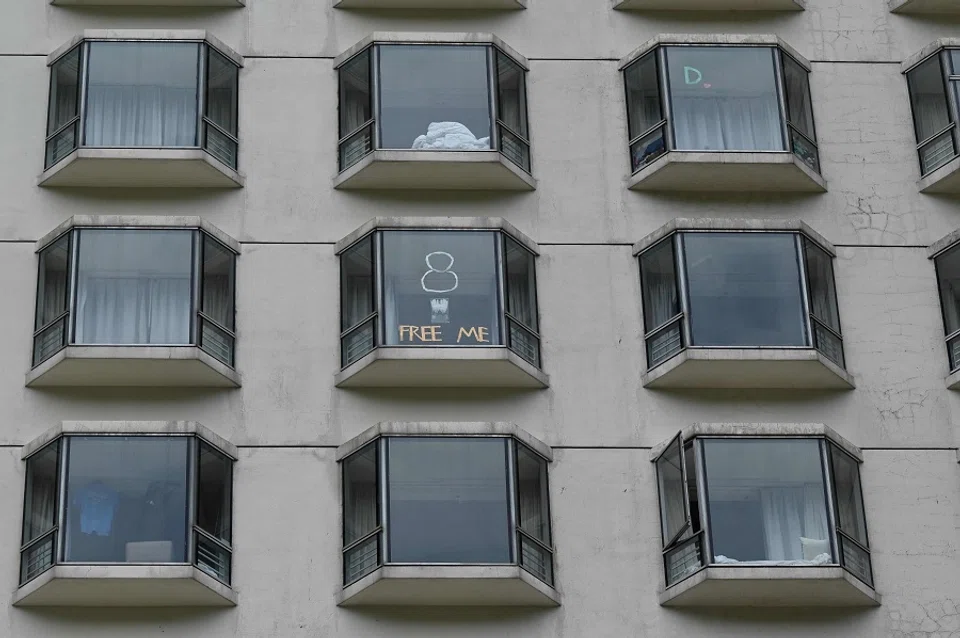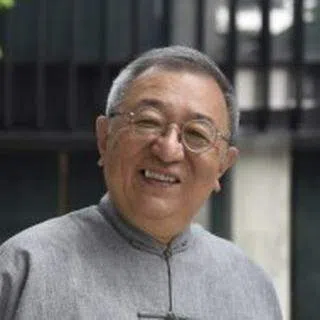Cultural historian Cheng Pei-kai: The best antidote for surviving the pandemic
Like many of us experiencing pandemic days, cultural historian Cheng Pei-kai spent the last two years living quietly. There is hardly a stir in his Hong Kong home, but his mind whirs away as an ancient's phrase here and a poet's verse there gives meaning to the plight of the times. On this occasion, he muses about quack Covid remedies and a tipple salve recommended in jest. A new take on drowning one's sorrows?

6 February 2020
The world is under attack by the novel coronavirus disease. I am cooped up at home and haven't gone outside for a whole week. My wife told me that the experts advised everyone to self-isolate for 14 days. We might as well use the time to meditate and contemplate the meaning of life and death, she mused.
It is said that Bodhidharma travelled to Shaolin Monastery and lived there in isolation for nine years before finally leaving behind the Yijin Jing (《易筋经》, an ancient health manual). Why don't we learn from him too? We can sit facing the bay of Wu Kai Sha and stare at the endless scenery before us, recording our thoughts, doing life's homework. Maybe in a week's time, we can take in our own disciples.
My wife's words are certainly right. Besides, we don't have that many masks left at home. Even just for a short breather outdoors, we would have to use a disposable mask that is now as precious as an Hermes scarf. On top of that, we would have to discard the mask after four hours of use - the cost is simply too high, and we'd be better off staying at home.
Putting on a Southern Fujian accent, I teased, "I will sit on the bed and stare at my wife."* My wife blushed, chiding me for speaking like a carefree teenager. I quickly explained that I was simply learning from Song dynasty Neo-Confucian philosopher Cheng Hao who said, "People do not understand the joys of my heart and think that I am merely indulging in the ways of the young."
What to do if you get the 'you-know-what'
Although I'm stuck at home, I haven't been twiddling my thumbs. None of my friends are reckless heroes - we cancelled all of our gatherings, even those planned for two months later, just to be on the safe side. We check on each other through WeChat, asking if any of our friends have caught the you-know-what. It is as if the novel coronavirus can be transmitted just with the mention of the word, so everyone only dares to call it the you-know-what.
I am reminded of the story of Wang Yan in A New Account of the Tales of the World (《世说新语》). Wang was a righteous man with noble pursuits and never once mentioned the word "money". Wanting to test him, his wife ordered her servant girls to scatter money all around his bed when he was fast asleep. Seeing the sight when he got up the next morning, he ordered the servant girls to remove all the e du wu (阿堵物, that stuff blocking the way). He really didn't utter the word "money"!

And then a whole lot of anti-pandemic information streamed in, from rumours that the virus is transmitted by eating wild game such as bats, masked palm civets and pangolins, to the possibility that the coronavirus spreads faster in cold weather than in hot weather. There was even information suggesting that taking hot baths can ward off the coronavirus, or that drinking a honeysuckle decoction can help remove toxins, and even that sesame oil can block the entry of the virus.
A drink a day doesn't keep the doctor away
Interestingly, among a list of ten pandemic prevention measures released by Hangzhou's pandemic prevention command centre, the sixth measure read: "Increase nutritional intake; avoid raw and cold food; do not eat wild game; take vitamin C at appropriate doses. Alcohol can be consumed in moderation."
Then, someone sent over an article titled "Reliable News! Drinking Baijiu in Moderation Prevents the Risk of Coronavirus Infection" with a photo of renowned Chinese pulmonologist Zhong Nanshan right at the top, which led me to believe that the opinions in the article belonged to Zhong.
After reading it, I realised that this was not the case - it had nothing to do with the "SARS hero" and leading respiratory disease expert at all. This article worked in the same manner as other clickbait articles did - they came up with a sensational headline claiming that a certain specially concocted drink could guarantee one's beauty and youth, and then slapped a photo of Audrey Hepburn on top.
It is just that I never expected that in the digital era of the 21st century, Zhong could match up to Hepburn and turn into an idol that netizens chased after.

This article was later called out by an anti-disinformation platform as high-level rumours put forth by alcohol suppliers who touted the myth that drinking alcohol prevents the risk of coronavirus infection.
I read the article carefully and realised that it cited evidence from Sui and Tang dynasty Chinese physician Sun Simiao, also known as the King of Medicine. Quoting from Qianjin Yaofang (《千金要方》, lit. medicinal formulas worth thousand taels of gold), the original words read: "A person drinks, and the whole family will not get the plague. A family drinks, and everyone within a distance of 500 metres will not get the plague."
At first, I thought the use of this quote was absolutely foolish and reflected zero knowledge about China's alcohol beverage-making history. Baijiu (白酒, a type of distilled liquor) was only prevalent after the Yuan dynasty. The alcoholic drink in Sun's era was a type of press wine with a low alcohol content not exceeding 15% alcohol by volume (ABV). It would have been around 5% ABV, meaning it could not have been baijiu.

But the more I examined the article, the more frightened I got - some profiteers must have hired substandard writers who didn't even understand the topic to write such articles in the hope of tricking people into believing what is said amid escalating anxiety over the coronavirus. Then, they would be able to profit from the disaster by boosting the sales of baijiu.
I told my brother living in Taipei about this incident. He replied, "The days of staying home have inspired me to come up with a remedy to treat the coronavirus. I will share it with you: 'Take 250ml of Kaoliang liquor, 200g of peanuts, 200g of spiced beef, and a plate each of pig's ear, fried fish, and chicken feet. Have them with wine and lie on the bed for eight hours. Do this at 6pm every evening for seven days. Repeat the whole procedure two times [14 days], and all will be well.'"
His "alcohol remedy" makes some sense.
*The original sentence reads: "I will sit on the boat (船 chuan) and admire the suburbs (郊区 jiaoqu)". Pronounced in the Southern Fujian dialect, "boat" sounds like "bed" (床 chuang), and "suburbs" sounds like "pretty wife" (娇妻 jiaoqi).
Related: Taiwan author Chiang Hsun: One humanity, one world | Cultural historian Cheng Pei-kai: A half-century journey around the globe to Hong Kong's Wu Kai Sha | Taiwanese art historian: What flowers and swallows taught me about life amid the pandemic | Chinese economics professor: Why we should not profit from natural disasters





![[Photos] Fact versus fiction: The portrayal of WWII anti-Japanese martyrs in Taiwan](https://cassette.sphdigital.com.sg/image/thinkchina/3494f8bd481870f7c65b881fd21a3fd733f573f23232376e39c532a2c7593cbc)